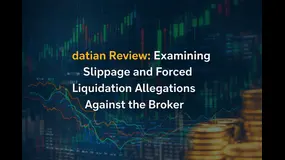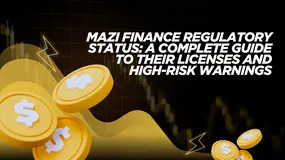Abstract:Foreign investors' interest in the Nigerian market is waning, according to Lamido Yuguda, Director General of the Securities and Exchange Commission (SEC), and this should be attributed to current concerns over FX illiquidity.

Foreign investors' interest in the Nigerian market is waning, according to Lamido Yuguda, Director General of the Securities and Exchange Commission (SEC), and this should be attributed to current concerns over FX illiquidity.
Yuguda made this statement during the Finance Correspondents Association of Nigeria (FICAN) 2022 workshop, which was held in Lagos over the weekend and had as its theme “Boosting Domestic Capacity for Sustainable Export Earnings.”
Speaking on Sustainable Foreign Exchange Earnings: The Regulatory Perspective, Yuguda, who was represented by the Director, Lagos Zonal Office, SEC, Hafusat Rufai, claimed that Nigeria has recently seen a significant decline in its foreign exchange earnings as well as revenues accruable to the federation because of the instability of global crude oil prices, the nation's low oil production, and oil theft.
According to him, this frequently led to foreign exchange shortages and balance-of-payment issues, and these recent developments have once again highlighted the crucial issue of sustainable foreign exchange revenues.
He stated that a historical review of foreign portfolio involvement in equity trading on the Nigerian Exchange Limited (NGX) over the previous 15 years shows a decline in foreign transactions of 29.38%, from N616 billion to N435 billion.
The overall number of domestic transactions in 2021 accounted for almost 77% of all transactions, while overseas transactions accounted for roughly 23% of all transactions during that time.
He stated that the Nigerian capital market has a vital role to play in contributing to sustainable foreign exchange (FX) profits notwithstanding the Federal Government and the Central Bank of Nigeria (CBNefforts )'s towards diversifying the economy and reducing overdependence on crude oil.
The foundation of any nation's exchange rate is sustained levels of foreign exchange revenues and external reserves. More foreign portfolio and direct investments might be attracted to the capital market, which would assist keep the value of the naira stable. Because other markets want the same inflows of foreign money, the market must be more competitive to achieve this.
The analysis was done in response to the recent Domestic and Foreign Portfolio Investment Report for January 2021 from the Nigerian Stock Exchange, which revealed that domestic equity market participation performed better than foreign transactions because the latter could only account for 20% of the total market activities.
One of the reasons the 10-year Nigerian Capital Market Master Plan (2015-2025) is based on four strategic themes, with competitiveness as one of the plan's key strengths, according to Yuguda, is because of this.
The SEC DG added that the commission is appreciative of the CBN's efforts in managing the exchange rate and will assist in any way it can to make it possible to achieve the goal of exchange rate stability. The commission will continue to advocate for a single foreign exchange rate in order to draw more foreign portfolio investments into the nation.
The Commission has been committed to building the commodities ecosystem as a powerful path forward in Nigeria's pursuit of sustainable foreign exchange earnings and economic development, in addition to our efforts to draw more foreign investors into the traditional equities and bond markets.










